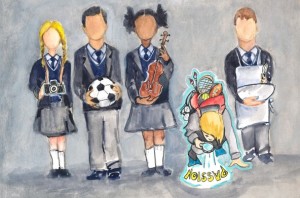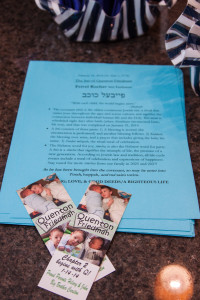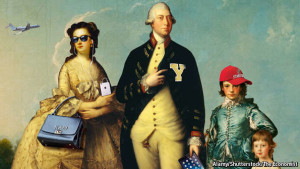Last week the always reflective Motherlode ran a very thoughtful and insightful essay by Lisa Heffernan, "Our Push for 'Passion,' and Why It Harms Kids."
 Heffernan actually makes the case that some forms of manufactured passion hurt not just the kids, but the whole family. Part of the reason why her essay is compelling (besides her clear, wise voice) is that she writes with self-reflection, admitting she herself has fallen victim to the "parental obsession with passion... encouraged by the college admissions process and fed by our own fears."
Heffernan actually makes the case that some forms of manufactured passion hurt not just the kids, but the whole family. Part of the reason why her essay is compelling (besides her clear, wise voice) is that she writes with self-reflection, admitting she herself has fallen victim to the "parental obsession with passion... encouraged by the college admissions process and fed by our own fears."
The essay rightly hones in on the role college admissions (though, in actuality it is more precise to say *elite* college admissions) in creating this push for passion: "At some point in the last 20 years the notion of passion, as applied to children and teenagers, took hold. By the time a child rounds the corner into high school and certainly before he sets up an account with the Common App, the conventional wisdom is that he needs to have a passion that is deep, easy to articulate, well documented and makes him stand out from the crowd." Heffernan also lasers in on one of the many reasons why this can be harmful to kids, "Pseudo passions can eat up our days and lay waste to any chance of finding real ones."
That said I need to make two important additions to this piece based on my research (much of it captured in Playing to Win: Raising Children in a Competitive Culture).
1) The ability to pursue a "passion" and invest familial/individual time and resources to do so is an enormously classed activity. When many families struggle for survival each month the notion that a child needs to find "their" thing is laughable not just in other parts of the world, but certainly in the US as well.
That said, some activities have been seen as worthwhile of passion in low-income communities as they can seem like a "way out"-- the traditional ones are basketball and football. In this case the endgame is usually not college (elite or otherwise) but professional levels of play. Talent and perseverance trump passion, and passion isn't seen as essential to the mix when there is almost a desperation.
The same can be said for other activities. One of my favorite passages from Joan Ryan's inside look at gymnastics and figure skating, Little Girls in Pretty Boxes, captures this notion: "Bragg himself had been a swimming coach, but swimming held no magic. It couldn’t turn milkmaids into princesses. To him, skating was more than a sport. To succeed in skating was to succeed in life. It was a road to riches and recognition, and perhaps more important, it was a road to respectability. Skating offered a life of restaurants with cloth napkins, hotels with marble lobbies, a life where a girl from the wrong side of the tracks could be somebody." [Bragg actually gave up custody of his daughter to her skating coach]
Even the language of "passion" is a terribly upper/middle class one in the contemporary US. It is akin to helping each child "find their voice." Sociologists and anthropologists have written about this language and worldview elsewhere, but it's worthwhile to note again. The Bragg example has more to do with clawing your way up than surviving or just thriving. Passion is far too generous a word for the striving associated with activities, achievement, and class success.
2) During my fieldwork studying kids involved with competitive chess, dance, and soccer I came across a phenomenon in all three activities I hadn't anticipated. I named it "the problem of the high-achieving child." When one child at an activity site was high-achieving it decreased participation of kids in that age group as parents wanted their children to find his/her "passion." In this case, "passion" equals being the best (and honestly that is the subtext of the Heffernan piece).
But what is a child is truly passionate about an activity and they aren't number 1, or even number 2 or 10? I find it such a loss when a child who *loves* an activity is redirected away from it by a parent. Who knows when that child will grow, or have a breakthrough, or whether those shooting stars will fizzle out and the child who stuck with something because s/he loved it may eventually be "the best?" But even if "the best" moniker never applies, if a child loves something they should be able to pursue it. Maybe the NBA will never come calling, or a Division III school, or even the varsity high school team, but perhaps that child becomes Belicheck, or Coach Taylor, or someone who makes a difference in the life of a child someday as a coach or teacher because they still have that same passion?
Passion is a privilege in both senses (class and achievement) and we should recognize this as such to help all children, not just those faced with elite choices.


